Proper nutrition for weight loss begins to interest us at this moment when we understand that dieting is not helping. Diets don't help - that's a fact. Why? The answer lies in the prohibitions and restrictions that abound in modern and well-known diets, "proven over the years". The right diet for weight loss should be varied, healthy, and nutritious, no matter how strange it may sound. There are some basic principles of such nutrition. And there's also a host of misconceptions, misjudgments, stories of great superfoods, blacklists of "bad foods, " as well as stories of amazing resilience. them.

Before starting a conversation about nutrition, you need to understand that in recent years, more precisely in the last 25-30 years, the balance of basic nutrients - proteins, fats and carbohydrates -was skewed towards carbohydrate composition. At the same time, you do not need to stress and calculate too much - just go to any store and look out the window with sweets. They take up almost a quarter of the store's space! And the first step to transitioning to a sensible weight loss diet will be to completely deny sugar in the daily diet. Sounds scary, doesn't it? Do you know why? Because sugar addiction is like drug addiction.
- Well, it started. . . - someone will say in frustration, - Again prohibitions and restrictions!
A few minutes of your attention, and you'll agree that giving up sugar can be a huge breakthrough in improving your body's health and resulting weight loss.
Of course, we need carbohydrates. But which ones? We've all heard of fast and slow carbohydrates. We need the slow ones. Foods made from whole grains, whole wheat flour, vegetables… Fruits and berries are high in fast carbohydrates, but eating fruits and berries is better than buying sweets from the pastry shop. Many nutritionists suggest firmly and abruptly giving up carbohydrates, and in any way, reducing intake to 20-50 g per day. Such a drastic shift from habit to useful can make you dizzy, lose energy, in a bad mood and believe that it is not useful and that it is proper nutrition.
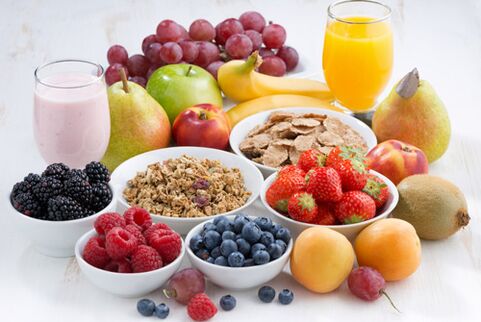
The right nutrition for weight loss will bring many benefits and joy if you switch to it gradually, steadily and without deviation. But first you need to understand why our bodies are so resilient against any change, especially a drop in sugar.
Sugar is truly the scourge of our times. Few of the products offered to us in supermarkets lack even a teaspoon of sugar. We're not even talking about sweets right now! Juices, yogurts, sauces, sauces, semi-finished meats, sausages and sausages, preserved fish, instant soups, instant noodles. . . The list is almost endless! Even more terrifying is the upcoming transition to new nutrition principles - turns out we have almost nothing to eat!? Don't panic, there's a way out, and it's pretty peaceful.
Proper nutrition for weight loss starts with three steps.
Step one:remove the sugar in its pure form. Tea, coffee, drinking water without sugar. We refuse preserves, jams, candies, chocolates, cookies and tea pleasures with friends or during breaks from work. Ice cream, cakes, even low calorie marshmallows are all excommunicated from our tables! All carbonated drinks are prohibited. Try not to eat sugar for two weeks, just two weeks - you will be surprised. Tea, it turns out, tastes different. So is coffee. Cocoa with milk, but without sugar, is better than any stimulant. And what should be served with tea? At this stage, nuts (unsalted), dried fruit, energy mix with honey (mixture of nuts and dried fruit, passed through a meat grinder, you can add lemon), avocado sandwich (yes, yes! ), normal cheese and sausage, and better with homemade boiled pork, caviar, lightly salted salmon, and more. v. At the same time, tea with all these delicacies should be included with breakfast, lunch or dinner, and not as a habitual snack. However, about snacks a little later.
Step two:As the body transitions from fast to slow carbohydrates, it's time to get rid of the high glycemic index foods: premium flour, white rice, and potatoes. That is, all of the cakes, pies, pies, porridge made from shelled rice, tapioca porridge, as well as everyone's favorite manna and potato pies are automatically converted from daily fooddelicious day. Yes, and the soup will now also be without potatoes. Also, rye bread and bread products made from whole wheat flour (no sugar, remember? ), buckwheat steamed or simply soaked in clean water overnight, instant oatmeal, they are mixed very well with fermented dairy products, as well as all strange products or forgotten grains such as spelt, quinoa. In addition, you need to remove sweet fruits from the diet - bananas, grapes, pears. Berries are not on this list due to their high acid content.
Third step:At this stage, you should give up any carbohydrates, leaving only natural carbohydrates that are part of sour vegetables and fruits. However, sometimes the first two steps are enough to significantly reduce weight. And if you do a few more conditions in tandem, you won't have to search for a new diet - you'll move to a whole new level where proper nutrition is a priority andforever.
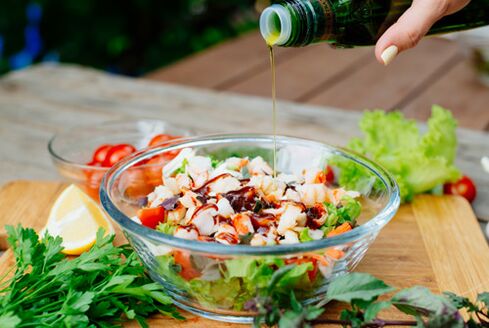
Proper nutrition for weight loss should be varied.This means that the balance includes not only the notorious BJU (proteins, fats and carbohydrates), but also vitamins and trace elements. And if carbohydrates give us energy in a pure, easily accessible form, it will be harder for the body to get this energy from protein and even more from fat. But, as always, what's hard to get is often what's most useful. Calories from carbohydrates are often excessive, our body has almost no effort to process them, which is why "sugar calories" very quickly fit into cozy rolls of fat.
Protein is very important for our body.Protein is very important throughout life: in childhood it is the building block, in adulthood it is the element that helps our bodies function and stay in top shape for as long as possible. Judge for yourself: proteins perform a protective function, help produce antibodies, transport, the most famous protein hemoglobin provides oxygen to every cell, regulate - normal hormone production is impossible without proteins, motor - all types of movement are provided by the proteins myosin and actin, resin - the collagen protein responsible for the condition of the connective tissue, the appearance of the skin, etc. v. , energy - protein provides energy for the body. But perhaps one of the most important tasks of proteins is to store and transmit genetic information. It is believed that the increasingly common terrible disease "Alzheimer's disease" is directly related to insufficient protein intake (not only with it, but a slightly lower second important component).
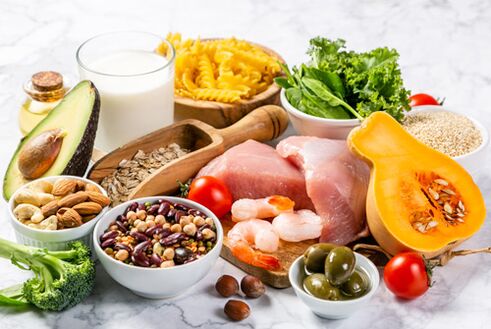
How much protein does the average adult need? Many nutritionists, doctors, and advocates of proper nutrition adhere to the norms of protein intake, deduced more than a hundred years ago by the German scientist Max Rubner, and which are zero. , 33 g of protein per 1 kg of human weight. Since then, science has changed a lot, and recent studies have inferred a high average rate of 1. 2 - 2. 0 g per 1 kg of weight. An impressive difference. Furthermore, this 1. 2 - 2. 0 g is not the weight of the product, such as a piece of meat or a portion of beans, but the pure protein content of the product. A sample table of high-protein foods is available on our website. Our website has written many times about the benefits of protein products, but it never hurts to repeat these common truths.
Although vegan, raw and vegan diets are very popular, we still need at least 50% of animal protein to keep our bodies healthy and not in a state of being. These are eggs, dairy products, fish and seafood, meat and offal. Those are proteins that have a complete set of amino acids, unlike plant foods. Although they must be eaten, if only for variety is the essence of proper nutrition!
It is clear that there are very few products on our planet that include any one substance. Almost every food is a combination of protein, carbohydrates, and fat. And here comes the last ingredient - fat - which is perhaps the biggest crime story in the history of nutritional science. At a "perfect" time, fat was considered the enemy of health. Everyone has heard horror stories about cholesterol, plaque in blood vessels, and other horrors. And when you look at how stores add low-fat or completely low-fat products at an enviable rate, you begin to question our sincere desire to provide us with the "right" food. "healthy", "live", because there is nothing right and useful in the absence of fat in the diet.
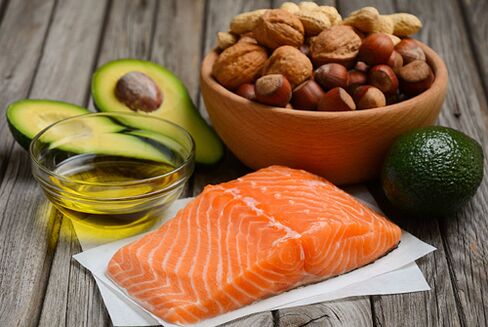
So what is the function of fat in our body? You will say - helps assimilate soluble vitaminsfat. That's all, huh? From the biology lessons of school days, someone will surely remember the heat exchange function of fat. So, the most important function of fat in the body is fat metabolism, in simple words ensuring oxygen exchange in the alveoli of the lungs. Fat forms the thinnest layer allowing us to breathe and . . . living. My grandmother's lung cures came to mind: badger fat, dog fat, goose fat, hot milk and butter - there's fat everywhere, inside and out, and it works! And, by the way, it's still useful, just that hypoxia (oxygen starvation) drugs, now sold at wild prices, are, in fact, a fat emulsion. Another important function of lipids is membrane synthesis. Cell membranes are composed of 70-85% lipids, and the function of membranes is to ensure cell protection, insulation, and their selective permeability (since not everything that tries to enter cells is useful). and necessary for it). The myelin, this insulating covering of our nerves, is 70-80% saturated fat. No myelin - Alzheimer's disease, senile sclerosis (pretty young) and dementiaFats are one of the most important substances necessary for the construction of membranes, myelin sheaths, ensuring their work, as well as the functioning of the central and peripheral nervous systems. Keep this in mind when choosing milk between 0. 5 and 3. 2% fat.
Another important function of fat is hormonal. Fat is a source for the synthesis of hormones, and there are many of them in our bodies. These are growth hormone, protein hormone, thyroid hormone, digestive system hormone, steroid hormone, adrenal hormone, sex hormone, etc. v. It is clear that even the slightest bias, the production of little hormones carries the risk of huge disruption in the work of the whole organism. The sudden onset of blackheads and acne, various types of skin rashes are signs of low androgen levels. Frequent headaches for "no reason" can be a sign of low estrogen levels. Constant insomnia - not enough progesterone. Fatigue, exhaustion, and even exhaustion even at rest can be signs of a violation of thyroid hormone production. Hair loss is also a sign of this disorder. Weight gain can be caused by high levels of the hormones estrogen, cortisol, and insulin, along with low testosterone levels. Forgetfulness and distraction are signs of low estrogen and cortisol levels. How everything is connected!
Fat is responsible for thermoregulation. That's why men who don't diet are usually hotter than women who always lose weight. Frequent freezing of hands and feet is most likely a sign of a fat deficiency, if it is not some inborn trait. The most well-known function of fats is to dissolve and help absorb fat-soluble vitamins: A, E, D, K. Following a low-fat diet and taking a multivitamin - not an option, the vitamin simply will not be absorbed.
And last, last but not least - vitamins, minerals, macro and trace elements. These are found in varying amounts and combinations in all products, but special attention should be paid to fresh vegetables, tubers, berries and fruits. One of the most valuable vitamins - vitamin C - is not synthesized in our bodies and we can only get it from fresh plant products. Our website has a full section on vitamins, read it, it's very helpful! Plant foods contain enzymes and flavonoids, all kinds of minerals, without which we cannot function properly. For example, potassium - the work of the heart without it will be interrupted. Magnesium is responsible for the health of the brain, nervous and hormonal systems and is involved in metabolism. And in plant products there is also fiber - without it, digestion and peristalsis are almost impossible!
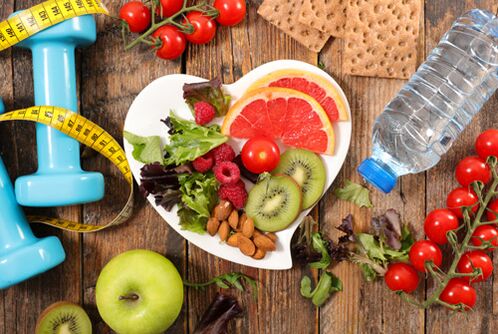
Proper nutrition for weight loss and body improvement includes the following principles:
Eat no more than three times a day. It's a surprise, isn't it? But what about 5-6 meals a day, advertised in many recommendations? Such small meals are perfect for children, athletes, and those who are seriously ill. If you don't fall into any of these categories, eat three or even twice a day.
Only eat when you feel hungry, do not eat in the evening. Breakfast is optional! If you don't want to eat in the morning, reschedule breakfast a few hours later. Don't stuff yourself with food just because someone says breakfast is the most important.
Learn to listen to yourself and understand the difference between feeling hungry and the usual habit of mixing something up. The following recommendations will help you with this.
Drink water. Not by the liter, as it is sometimes advised. Do not boil. Preferably bottled or spring. The drinking regimen is very simple and straightforward: 2 warm glasses (not cold and not boiling) in the morning, 1-2 cups during the day and 1 glass in the evening. Sometimes just drinking water is enough to understand that it's just thirst, not hunger.
Get in the habit of buying all kinds of nuts and seeds more often. In addition to fats, they also contain a large amount of macro and trace elements.
Eat whole foods. That is, no fat! Cheese stick - 9% fat, no less, but sour cream, coffee with cream, avocado sandwich, fatty cheese, fatty sea fish, exotic avocado, bacon! This is not a typical skewer "from fire to fire. " Of course, there needs to be a measure in everything.
Don't forget about protein! But equally important is what to combine it with. And this recommendation will be final.
Eat vegetables. Lots of vegetables and herbs. Fresh, pickled, pickled, steamed, boiled and even fried in oil! But fresh salads will of course be preferred. Calculating the amount of vegetables is not difficult: divide your plate into two portions - one half will be vegetables, and the second will fit protein, fat and the same minimum amount of carbohydrates.
Proper nutrition for weight loss is not strict tables and formulas. This is a deliberate approach. All these tips will only be effective if there is an almost complete elimination of carbohydrates. If you combine protein with carbohydrates (mashed potatoes with cutlets) or fat with carbohydrates (bacon with bread) in one plate, you're done. More precisely no, of course, you won't die instantly. You'll just live on, sighing to death with every new kilo and complaining about the injustice ("It's true I'm sitting in the same bowl of water, where's the fat??? "). No need to sit on the water, no need to torment yourself with diets, starving. Just start with three steps and walk, without turning anywhere, for health and beauty.














































































